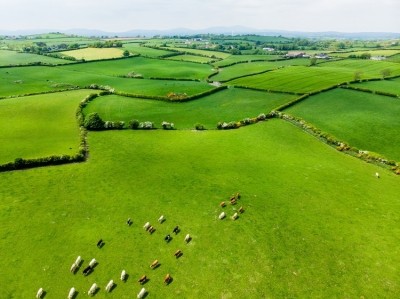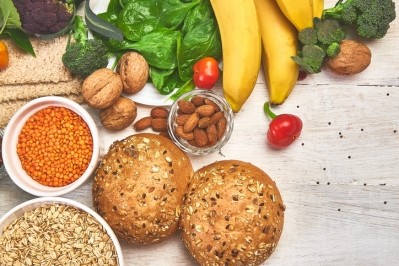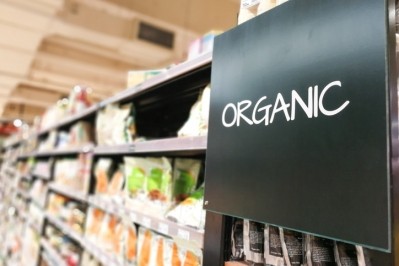‘We all need to step up our efforts to make food systems more sustainable’: How is the EC supporting sustainable food?

The European Union has a legally binding net zero emissions target by 2050. Food production is responsible for one-quarter of the world’s greenhouse gas emissions. To achieve net zero, the Commission recognises that the way we produce and consume food needs to be transformed.
Through the Green Deal and Farm to Fork strategy, the Commission has set out further details of its ambitions in agri-food. The EC wants a 50% reduction in the use of pesticides; ‘at least’ 20% reduction in the use of fertilisers; 50% reduction in sales of antimicrobials used for farmed animals; and 25% of agricultural land to be used for organic farming.
“We all need to step up our efforts to make our food systems more sustainable and capable of meeting our 2030 Sustainable Development Goals. In the European Union we are taking action – indeed many actions – through the Farm to Folk Strategy. The Strategy is the head of our efforts towards more competitive and sustainable food systems,” Agriculture Commissioner Janusz Wojciechowski told the digital audience of the Future of Food Conference, organised by EIT-Food.
“We are taking a systemic approach, we want to tap into new opportunities across different sectors by developing integrated responses that can benefit people, nature and economic growth,” the Polish politician said.
But what does this look like on the ground? What concrete steps are being taken to transition European agri-food production?
Wojciechowski said that the EC has established a framework for action, with specific targets and deadlines. “Before the end of 2023 the Commission will table a proposal to put in place a framework for a sustainable food system. Our aim is to progressively raise sustainability standards so that they become the norm for all food products placed on the EU market,” he told delegates. The Commission is then planning to launch a ‘broad consultation’ to gauge the views of stakeholders and citizens.
Marketing standards to ‘empower’ sustainable consumption
On the market side, Wojciechowski revealed that a ‘proposal for a revision of the European Union marketing standards’ will be put forward within the next year. “The purpose of this revision is to provide for a greater uptake and supply of sustainable agricultural products thereby complementing other actions of the Farm to Fork Strategy.”
In the 27 measures proposed by the original Farm to Fork strategy document, the Commission included proposals on nutritional labelling and origin labelling. It also put forward a proposal for a sustainable food labelling framework to ‘empower consumers’ to make sustainable food choices, to be established by 2024.
“We believe consumer demand for food that is higher in quality, healthier and more sustainable can generate new opportunities for farmers and the wider rural economy,” Wojciechowski said yesterday. “To help farmers take advantage of this opportunity we must combine our legislative approach with concrete actions that can bring short- to medium-term results on the ground.”
Carbon farming and ‘green business opportunities’
In particular, Wojciechowski singled out the potential of carbon farming to unlock ‘green business opportunities’ for European farmers.
“By the end of this year the Commission will put forward a proposal for a new EU carbon farming initiative. This will reward farmers and foresters for practices that remove CO2 from the atmosphere, thus contributing to the carbon neutrality objectives through a new sustainable business model,” he announced.
The Common Agricultural Policy will also play a ‘key role’ in ‘fulfilling the ambitions' of the Green Deal and Farm to Fork Strategy. "Member States are due to submit their plans to the Commission by the end of the year, outlining how they will spend agriculture funds from 2023-2027. For the first time in the history of the CAP they will implement the most significant support instruments in budgetary terms in a single territory under a single programming instrument. This is a key step to guarantee a more consistent and strategic approach in the design and implementation of the different instruments… between the two pillars of the CAP,” he suggested.
‘We are not alone in this’
The CAP is ‘not the only tool’ to push the EC’s sustainable food agenda, Wojciechowski continued. “An active and continuous contribution from all relevant policies is necessary to realise our goals.”
Speaking at the event organised to support the development of innovation and technology in Europe, Wojciechowski stressed the value of the contribution made by all parties, including civil society, academia and business. “The task ahead of us is complex but I am happy to see we are not alone in this… bringing together projects and partners to make our food systems more sustainable healthy and trusted… I’m very impressed with the work being undertaken by EIT Food initiative and its partners. Your projects in the areas of innovation, education, entrepreneurship and consumer engagement show exactly the kind of ideas and initative we need to achieve the ambitions and commitments raised at the UN Food Summit.”








